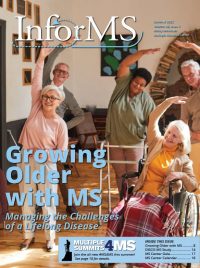- MRI Scan Change or Relapse: Over 90% of participants overall (across both groups) did not have new MRI scan changes or relapse.
- Relapses were especially uncommon. 4 people out of total 259 participants.Only 1/128 persons who stayed on medication had a relapse.
Only 3/131 people who went off drug had a relapse - In the overall group, amongst the 4 relapses, only 1 individual actually had any scan changes at the same time.
- In the continue group, there were a total of 6 events (1 relapse and 5 people who had MRI scan lesions). In the discontinue group, there were 16 events (three relapses, one who also had MRI scan changes, and 13 who had just new scan lesions).
- Statistically, there were three possible outcomes in the study. Compared to continuing medication, we could show that discontinuation was inferior; not inferior; or indeterminate, i.e. possibly inferior. While there were more discontinuers that achieved the primary outcome measure (16 vs 6), statistically this primary outcome was not proven to be inferior or NOT inferior in those discontinuing DMT. That is, within the limits of measurement, it is possible this primary outcome was inferior. There were no significant differences noted between the groups in progression of disability or symptoms, quality of life, a cognitive test, or adverse events. The majority of the numerical difference between continuers and discontinuers on the primary outcome was discontinuers who had one or two new brain MRI lesions without relapse. What this means in the long run for people is unclear, especially as there was no relationship between that, and progression of disability.
- Of the 22 total people having a new relapse or brain MRI lesion, 15 of the 22 (68%) simply had one or two new brain MRI lesions.
- Relapses were especially uncommon. 4 people out of total 259 participants.Only 1/128 persons who stayed on medication had a relapse.
- Progression of Disability: No increased risk of disability progression in those discontinuing DMT (11% in continuers, 12% in discontinuers)
- Patient Reported Outcomes and Cognitive Testing: No significant differences at the beginning or end of the study
- Adverse Events: Just over 82% of individuals overall had any adverse event (AE), with no significant difference between the groups. Overall, 15% had serious adverse events (SAEs), with no significant difference between the groups. For 1 in each group, the SAE was felt to be due to participation in the study.

